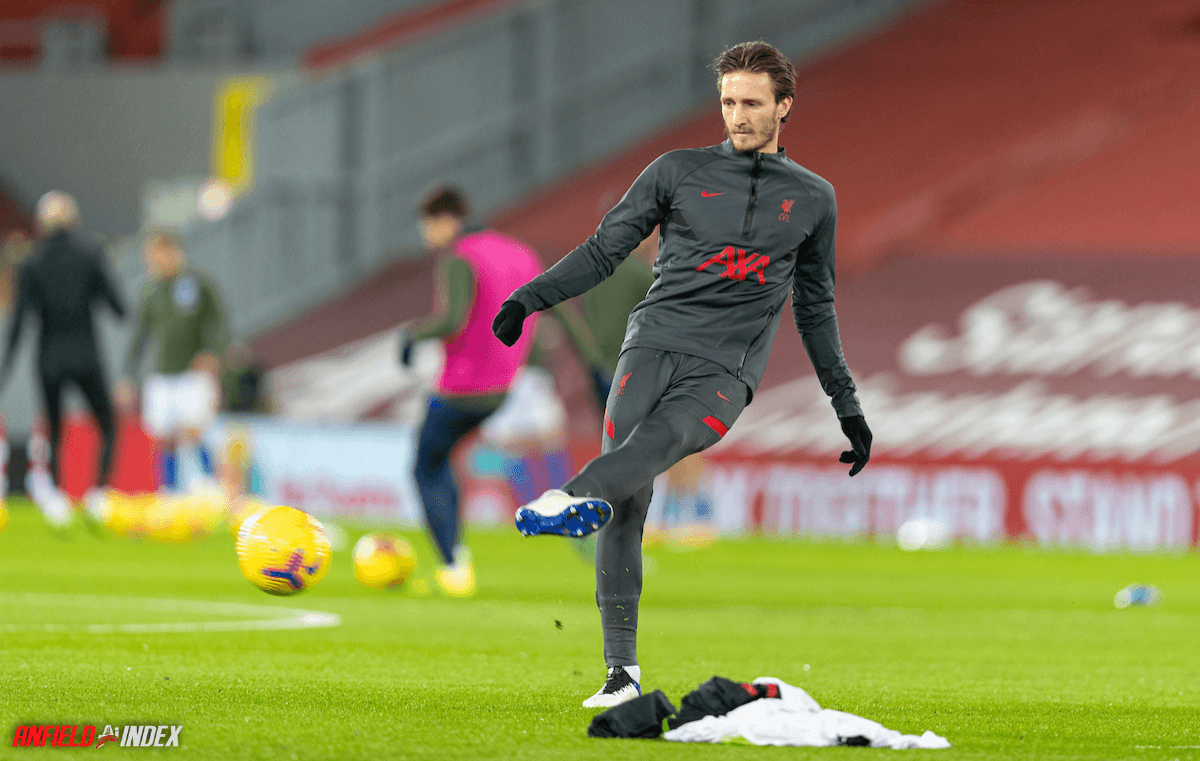Unless you’re an ex Liverpool player, the likelihood is that you and I have played the same number of minutes for the Reds as Ben Davies: zero.
The centre half arrived at the injury-depleted defending champions in January from Championship side Preston North End and was expected to plug the considerable gap left in Liverpool’s defence by the injuries to Virgil van Dijk, Joe Gomez and Joel Matip.
Almost five months later, the 25-year-old is still waiting to make his debut, however, and with persistent links to other centre halves — including the probability that his fellow January signing, Ozan Kabak, will have his loan move made permanent in the summer — it could well be the case that Davies never dons the famous red jersey in a competitive game.
It now appears likely that Liverpool’s approach to signing the cultured, left-footed defender was twofold. Firstly, and quite obviously, they had a gaping hole in the heart of their defence and attempts to field midfielders there — with Jordan Henderson, with less success and Fabinho, to much acclaim, both moonlighting as centre backs — had unbalanced the team.
Davies may have come from a lower league in the English football food chain, but surely he would make a better fist of protecting the Reds’ goal than a midfielder with no experience in the role. And perhaps he would have played more if it wasn’t for the fact that Nat Phillips — who also had no experience of top-flight football prior to this season — acquitted himself well when called upon this season.
Likely to have been the determining factor in paying Preston just over £400,000 for Davies’ signature, though, was the big picture and how signing a reasonably highly regarded English player could strategically benefit Liverpool in the future.
Michael Edwards, the sporting director at the Anfield club, is no fool and he knows that homegrown players — especially in the context of Brexit — hold a high value in English football. In signing Davies, the Reds’ knew that if he could help them short term and impress at centre half then there would be an immediate, positive impact on the team.
But if not, the blow would be cushioned by the fact that the former Tranmere loanee who — at 25 years old — is relatively young and would handily turn Liverpool a profit if and when they looked to move him on in the future. Davies was linked heavily to Celtic before joining the Anfield club and was widely regarded as one of the foremost central defenders in the second tier of English football.
Not making the grade at the reigning English champions wouldn’t be a deterrent to clubs looking to sign Davies, as demonstrated regularly in the recent past. Brad Smith, Sergi Canos, Dominic Solanke and Kevin Stewart, among others, have all departed the club for decent fees, despite the fact they were, at best, on the fringes of the squad.
Regularly training under Jurgen Klopp is as good a schooling a footballer is likely to get, and such exposer to world-class coaching adds value to any player and this has borne out time and time again by the sales the Reds have made.
Davies wouldn’t be the first homegrown player signed with the possibility of moving them on in the near future, should they not make the grade. Liverpool snared Solanke from Chelsea and Stewart from Tottenham on low fee transfers, only sporadically using each player before moving them on to Bournemouth and Hull respectively for a combined fee of almost £30,000,000.
Some may question the morals of signing players partly with the intent of moving them on quickly, but football is cutthroat and this policy has served the Reds well in the past and, in light of Brexit, could well be a course of action they use consistently in the future.



